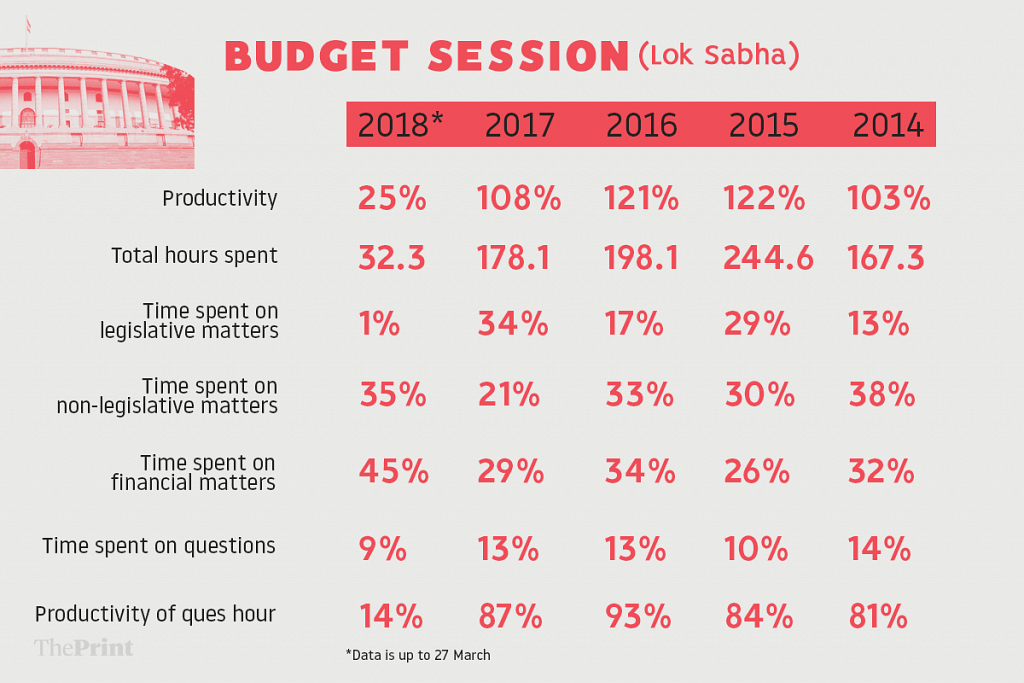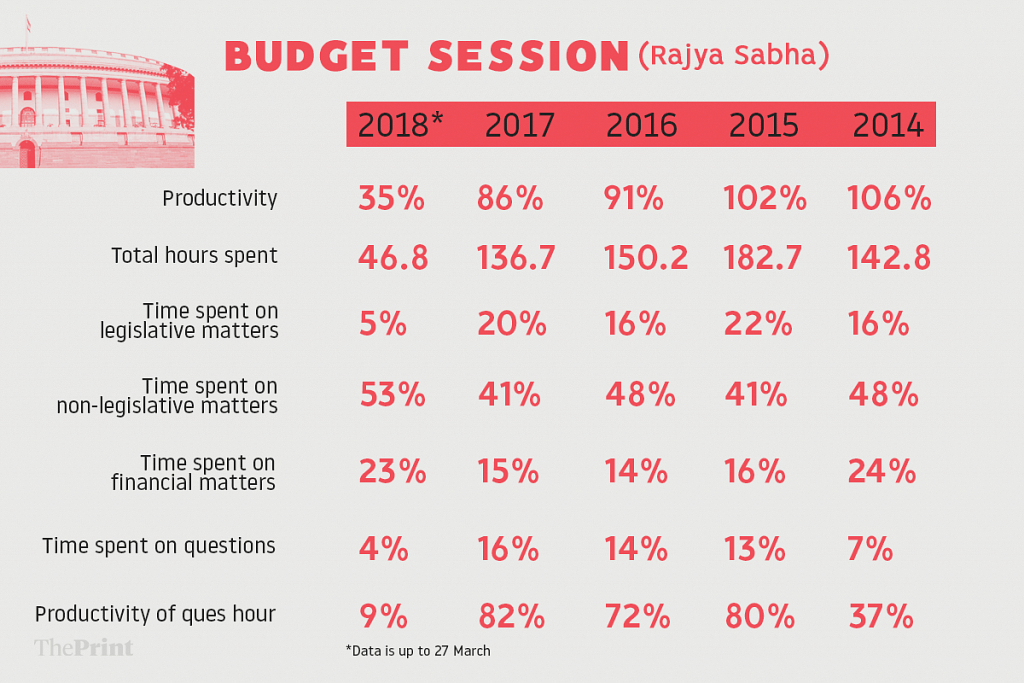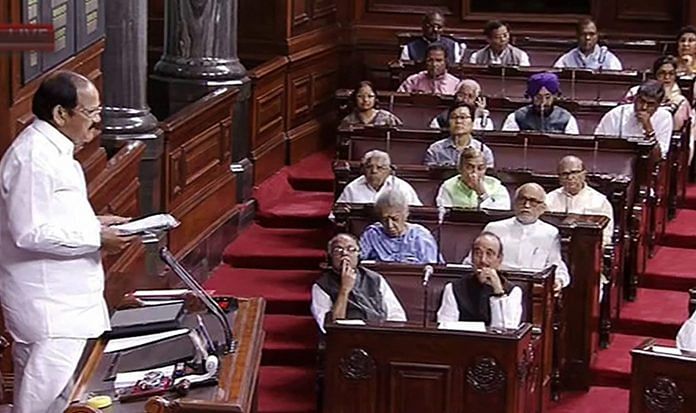This is the least productive budget session since 2014, with the Rajya Sabha also witnessing meaningful activity for just 35% of the planned time.
New Delhi: The ongoing budget session of Parliament has been a washout. As the government and opposition continue to level charges at one other, the institution of Parliament has emerged as the biggest victim, as near-negligible business has been conducting.
The current session is the least productive budget session since the BJP-led government came to power in 2014. The Rajya Sabha worked for just 35 percent of the planned time, while the Lok Sabha performed even worse, at 25 percent.
Productivity of a session is measured by the number of hours the house functions as against the number of hours that were planned or allotted.

As per PRS Legislative Research data, until 27 March, productivity saw a sharp decline from the 108 per cent (Lok Sabha) and 86 per cent (Rajya Sabha) figures registered in the 2017 budget session.
The corresponding figures in the previous three years were 121 and 91 per cent, 122 and 102 per cent, and 103 and 106 per cent respectively for the Lok Sabha and the Rajya Sabha.
The first leg of the budget session began on 29 January and continued until 9 February, during which time the Economic Survey and the Union Budget were presented. The session reconvened on 5 March post recess, and since then, has witnessed more disruptions and adjournments than any productive work.
The opposition has cornered the government in both houses over the Nirav Modi-Punjab National Bank fraud scam, while Andhra Pradesh’s Telugu Desam Party and the YSR Congress have been protesting against the government’s refusal to grant the state special status. Both these parties have, in fact, filed notices for a no-confidence motion against the government, but their motions have not been taken up so far, ostensibly thanks to the continuous disruptions.

Details of time lost
In this session, the Lok Sabha has so far sat for a total of 32.3 hours and the Rajya Sabha for 46.8 hours, significantly less than the 178 hours and 136.7 hours respectively last year. The corresponding figures for the previous three years were also much higher — at 198 hours and 150 hours, 244.6 hours and 182.7 hours, and 167.3 and 142.8 hours respectively.
The productivity of the Question Hour – significant in Parliamentary proceedings because it allows MPs to ask questions on different aspects of government and administrative activity – has been even more abysmal. In the Lok Sabha, it has witnessed a productivity of just 14 per cent, and in the Rajya Sabha, nine per cent. In 2017, the figures were 87 per cent and 82 per cent respectively, and in 2016, 93 per cent and 72 per cent.






